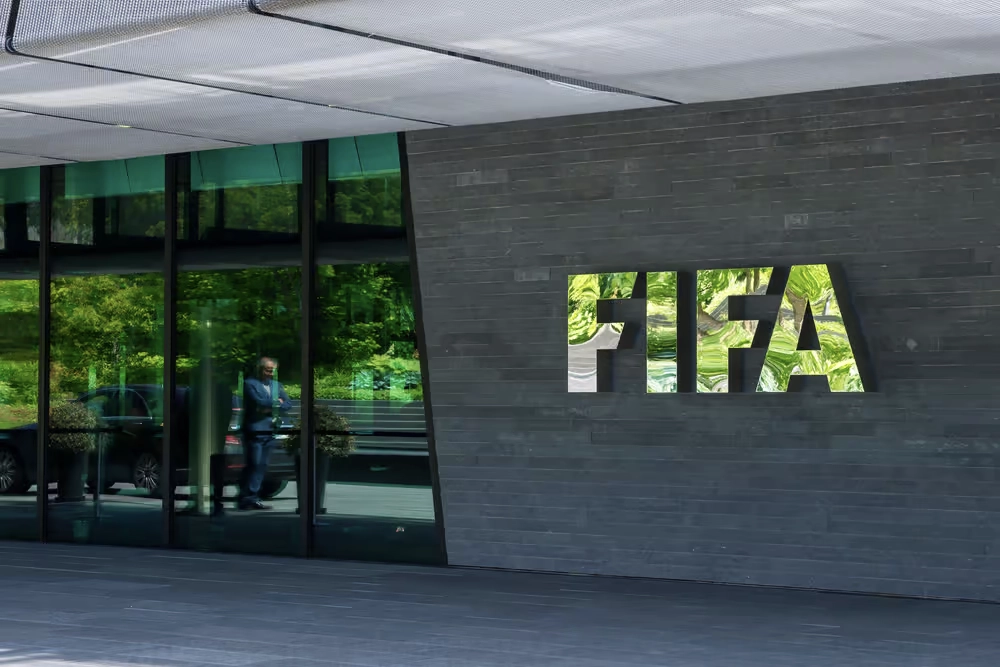Background
In December 2022, the FIFA Council approved the new FIFA Football Agent Regulations (FFAR), which came into force on January 9, 2023.
The new regulations have significant implications for players, clubs, and agents.
During a transitional period until September 30, 2023, agents registered with the Norwegian Football Federation (NFF) could continue operating as before. However, starting October 1, 2023, anyone wishing to work as a football agent must hold a FIFA license.
To obtain the license, agents must pass an exam. In 2023, the exam was offered in April and September.
There is one exception: agents licensed before the intermediary regulations came into force in 2015 may be relicensed without having to take the exam.
As of October 1, 2023, around 40 Norwegian agents were licensed and listed on FIFA’s agent portal.
Historical Context: Agents and Intermediaries
Previously, being a licensed FIFA football agent was mandatory. This system remained until 2015, when FIFA introduced the “Regulations on Working with Intermediaries,” which the NFF implemented nationally.
The change was made because FIFA observed a dramatic rise in agent fees. In 2014 alone, $236 million USD was officially paid to agents, and FIFA suspected actual amounts were even higher. Many transfers involved unlicensed agents, lacking transparency and complicating cost tracking.
The intermediary system aimed to allow broader access while improving control and transparency. However, anyone could become an intermediary, often leading to underqualified individuals handling important deals.
Due to these issues, FIFA reintroduced the licensing model with the new FFAR, effective October 1, 2023.
Key Provisions in FIFA’s Agent Regulations
Cap on Agent Fees
The FFAR introduces a cap on agent commissions:
- Agent representing the new club: 3% or 5% of the player’s salary
- Agent representing the player: 3% or 5% of the player’s salary
- Agent representing both: 6% or 10% of the player’s salary
- Agent representing the selling club: 10% of the transfer fee
The threshold is USD 200,000: 5% applies to the first USD 200,000 of salary, and 3% applies to the excess. Dual representation allows combined limits.
This cap is controversial and may conflict with competition law, especially impacting agents outside the top leagues.
Representation Agreements and Transitional Rules
Representation agreements must:
- Be written and signed (including by guardian if the player is a minor)
- Include the names of the parties
- Specify the agent’s fee
- State the agreement duration
Agreements in effect before December 16, 2022 remain valid until expiry but cannot be extended. Agreements signed from December 17, 2022 to September 30, 2023 must comply by October 1, 2023. All agreements from October 1 onward must follow FFAR rules.
Player/trainer-agent agreements are capped at two years. Agents must also inform clients of their right to independent legal advice before signing.
Who Pays Agent Fees and When
Under the FFAR, players must pay their agents directly—unless they earn under USD 200,000/year, in which case the buying club may pay.
Eventually, all agent payments in international deals must go through FIFA’s Clearing House and follow a quarterly schedule, tied to the player’s salary payouts. Initially, payments may still occur directly.
Dual Representation
Agents can only represent one party per transaction. The only exception: if both the player and the new club give written consent, the agent can represent both. In this case, the club may pay up to 50% of the fee.
Agents may not represent:
- Selling club and player
- Selling and buying clubs
- All parties in a single transaction
National vs. International Scope
FFAR applies when a representation agreement involves an “international dimension”—such as a transfer between clubs in different national federations. Domestic-only agreements remain under national regulations. NFF’s regulations are mostly aligned with FFAR.
The nationality of the agent or player is irrelevant; what matters is the international nature of the transfer.
Dispute Resolution
Under FFAR, FIFA’s Agents Tribunal handles international agent disputes. Decisions can be appealed to the Court of Arbitration for Sport (CAS).
Sanctions
Violations of FFAR—by agents, clubs, coaches, or players—may lead to sanctions. International violations fall under FIFA’s Disciplinary Committee; national breaches are handled by domestic bodies such as NFF’s tribunals.
Agent Exam
The exam consists of 20 multiple-choice questions, lasts 60 minutes, and requires 75% correct answers. It covers FFAR, FIFA’s RSTP, and related circulars. Even lawyers or family members must take the exam.
Agents must pay an annual license fee of USD 600, plus a potential national exam fee. The license is non-transferable and valid indefinitely. Unlike before, it allows global operation.
Summary
FIFA’s new agent regulations came fully into force on October 1, 2023. From that date, one must either pass the exam or be exempt based on pre-2015 licensing.
The new rules significantly impact players, clubs, and agents. Understanding and complying with them is essential to avoid sanctions.
Several provisions tie into the FIFA Clearing House and national regulations, and new systems will likely be required to support full implementation.
